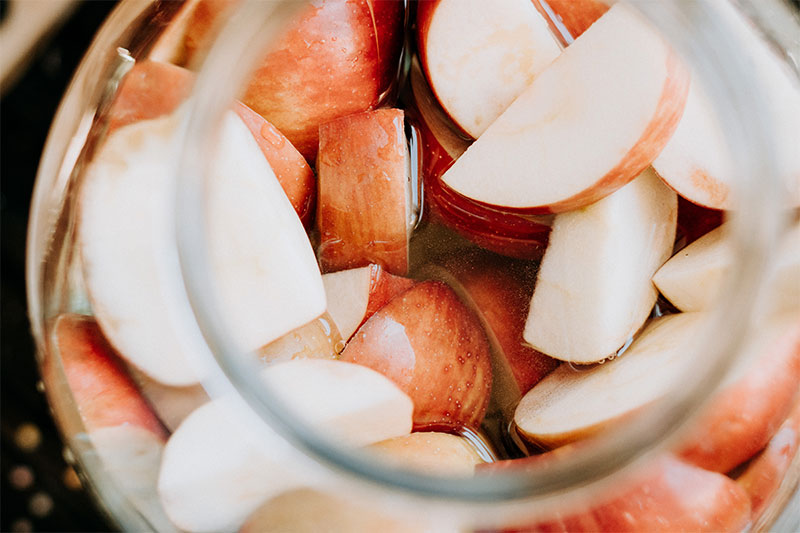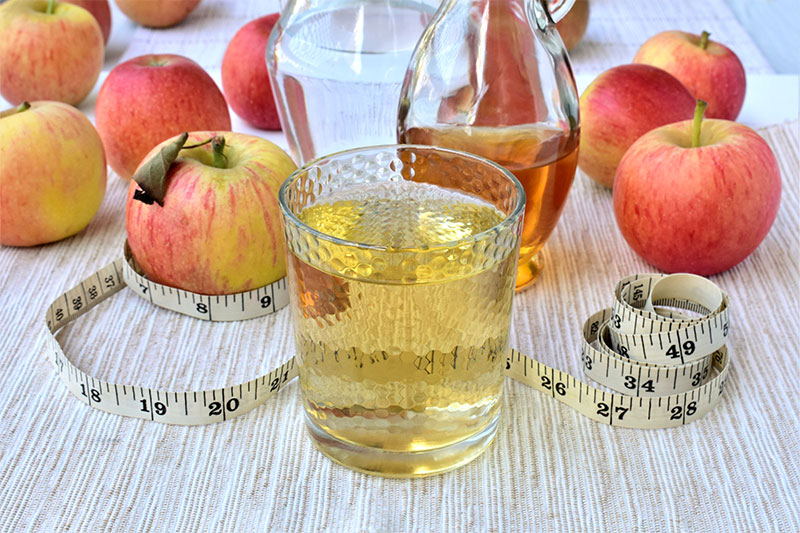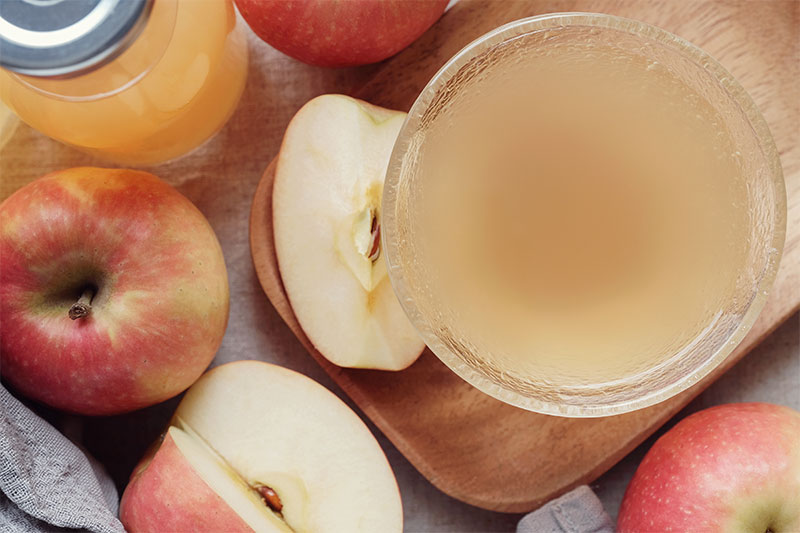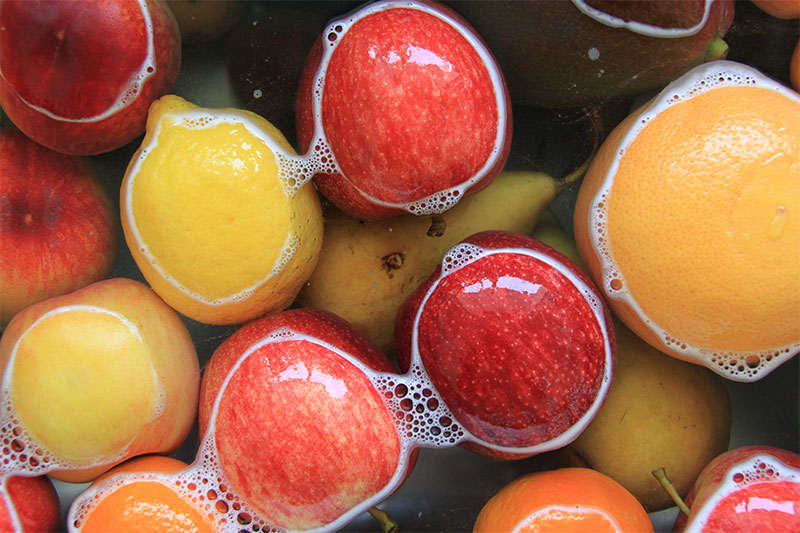We never talk about fruit vinegar, and we only remember we have them somewhere in the pantry when we want to make a salad dressing. That’s too bad because fruit vinegar is quite healthy and useful.

Apple, blackcurrant, raspberry and quince vinegars are the most common varieties, and they’re made from fruit wine. Fermented fruit juice converted to vinegar by natural bacteria. The miraculous transformation makes the liquid an excellent source for nutrients and unexpected benefits.
Here are 9 neglected benefits of fruit vinegar and how to make it.
Lowers Blood Sugar Levels
Consuming fruit vinegar before, during and after your meals can dramatically reduce your blood sugar markers because it increases your natural insulin response absorbing glucose better. Insulin resistance can be less of a problem with daily consumption of fruit vinegar.
Adding fruit vinegar to your diet is easy since it’s quite enjoyable, especially if added to stews and mainly to make homemade salad dressings.
Reduces Cholesterol in our Bloodstream
Acetic acid, the active compound in fruit vinegars can help you increase the good cholesterol, High-Density Lipo-protein, and at the same time, reducing the harmful, Low-Density Lipo-protein, cholesterol and triglyceride levels.
The fat that accumulates in the liver can also diminish with regular fruit vinegar intake, and it clears your arteries from harmful lipids.
Helps You Lose Weight

Consuming fruit vinegar before your meals can help you feel satisfied faster, which causes a weight reduction over time.
Belly fat can be reduced by drinking just a few teaspoons of vinegar throughout the day, and it’s not only losing weight but preventing your body from gaining unnecessary weight again.
Together with the reduction of bad cholesterol in your bloodstream, vinegar has proven to be an excellent supplement for those who suffer obesity and weight problems.
Is a Great Antioxidant
Polyphenols in fruit vinegar are potent antioxidants that protect our cells from oxidative stress caused by free radicals floating in our bloodstream that damage cells and weaken arteries.
The protective cell properties in the vinegar will also slow down premature aging and can prevent some types of cancer associated with oxidation.
It Has Antimicrobial Properties

Although effective to disinfect wounds, for that purpose is better to use alcohol-based products. This doesn’t mean that the well-known antibacterial properties in vinegar are not useful.
Consuming fruit vinegar can help you regulate your gut bacteria and maintain excellent oral health, preventing maladies like gingivitis.
Acetic acid kills not only bacteria but some viruses and can even be used to clean surfaces.
Aids with Digestion
The acidic fruit vinegar promotes the production of bile and aids digestion, relieving stress on your liver. Vinegar helps break down your food, helping you absorb nutrients better.
Even small amounts of fruit vinegar added sparingly to your diet can show positive results for digestion.
Stimulates your Appetite
A tablespoon of fruit vinegar or even a vinegar-based drink like a shrub can stimulate your appetite, something particularly useful for people suffering from chronic diseases that inhibit the food craving.
Salivation and production of bile, together with the ability to make you feel satisfied and aiding digestion, make vinegar one of the best supplements when it comes to your digestive system.
Could Help Treat Cancer
Encouraging scientific results have associated the consumption of fruit vinegar with the reduced risk of getting some types of cancer like esophageal cancer.
It seems acetic acid inhibits cancer cell generation in colon cancer and could play a part against leukemia, breast cancer and other cancers.
Much research is still needed, but the clinical results are pointing in the right direction.
Helps Prevent and Treat Diabetes
As stated before, vinegar lowers blood sugar levels, but it also increases insulin sensitivity. It can also reduce the glycemic levels on a regular meal, as your body responds better to insulin.
Fruit vinegar can slow down the degenerative effects of diabetes, and that’s encouraging. Talk to your nutritionist and explore the possibilities of adding fruit vinegar to your diet.
Make Your own Fruit Vinegar

Making your fruit vinegar is not as hard as you might think. It all starts with fruit wine, like cider. You can also ferment your own fruit wine with wine-yeast and your favorite all-natural fruit juice.
Dilute your fruit wine with an equal part of water and add a vinegar starter or “mother;” they’re widely available on the web. Add to a jar and cover with cheesecloth to let the vinegar breathe.
Leave in a dark place for two months and taste regularly. Once ready, drain and refrigerate. That’s a fun DIY project right there!



